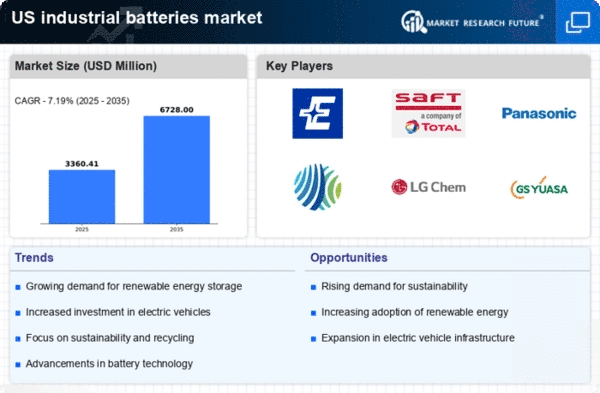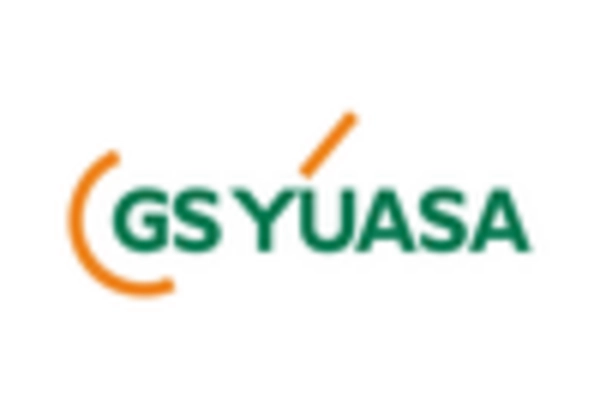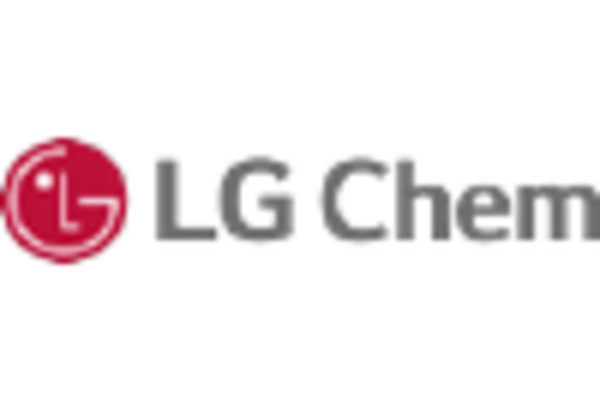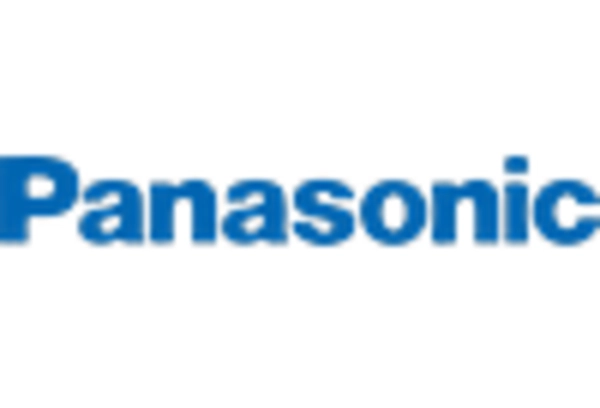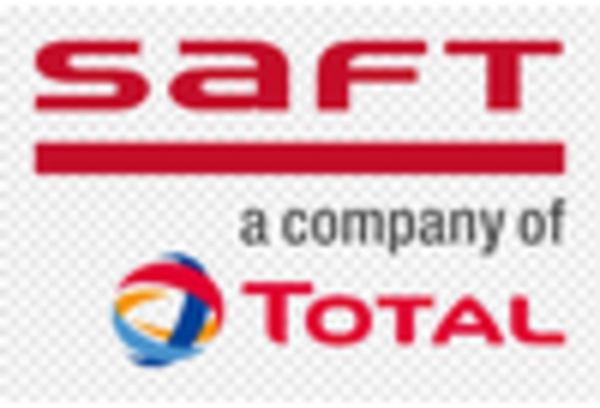Regulatory Support and Incentives
The industrial batteries market is significantly influenced by regulatory frameworks and government incentives aimed at promoting energy efficiency and sustainability. Various federal and state policies encourage the adoption of advanced battery technologies, providing financial incentives for businesses to invest in energy storage solutions. For instance, tax credits and grants for renewable energy projects have been instrumental in driving the growth of the industrial batteries market. As regulations become more stringent regarding emissions and energy consumption, industries are likely to turn to industrial batteries as a viable solution to comply with these mandates. This supportive regulatory environment is expected to bolster market expansion, potentially increasing market size by 20% over the next five years.
Expansion of Electric Vehicle Infrastructure
The expansion of electric vehicle (EV) infrastructure across the United States is positively impacting the industrial batteries market. As the automotive industry shifts towards electrification, the demand for high-capacity batteries is increasing, which in turn drives the need for industrial batteries in various applications. Charging stations and battery swapping facilities require robust energy storage solutions to support the growing number of EVs on the road. This trend is expected to create new opportunities for the industrial batteries market, with estimates suggesting a potential market growth of 18% as industries adapt to the evolving transportation landscape and invest in necessary infrastructure.
Growing Demand for Renewable Energy Solutions
The industrial batteries market is experiencing a notable surge in demand due to the increasing adoption of renewable energy sources such as solar and wind. As industries strive to reduce their carbon footprint, the need for efficient energy storage solutions becomes paramount. Industrial batteries play a crucial role in storing excess energy generated during peak production times, which can then be utilized during periods of low generation. This trend is expected to drive the market, with projections indicating a growth rate of approximately 15% annually through 2027. The integration of industrial batteries into renewable energy systems not only enhances energy reliability but also supports the transition towards a more sustainable energy landscape.
Technological Innovations in Battery Chemistry
The industrial batteries market is witnessing rapid advancements in battery chemistry, which are enhancing performance and efficiency. Innovations such as lithium-ion, solid-state, and flow batteries are gaining traction due to their superior energy density and longer life cycles. These technological improvements not only increase the reliability of energy storage systems but also reduce operational costs for industries. As companies seek to optimize their energy management strategies, the demand for high-performance industrial batteries is likely to rise. Market analysts suggest that the introduction of next-generation battery technologies could lead to a market growth of around 12% annually, reflecting the critical role of innovation in shaping the industrial batteries market.
Rising Industrial Automation and IoT Integration
The industrial batteries market is benefiting from the rise of industrial automation and the integration of Internet of Things (IoT) technologies. As industries increasingly adopt smart technologies to enhance operational efficiency, the demand for reliable energy storage solutions becomes critical. Industrial batteries are essential for powering automated systems and IoT devices, ensuring uninterrupted operations. This trend is likely to drive market growth, with projections indicating a compound annual growth rate of 14% as industries seek to leverage advanced technologies for improved productivity. The synergy between automation and energy storage solutions is expected to redefine the landscape of the industrial batteries market.


